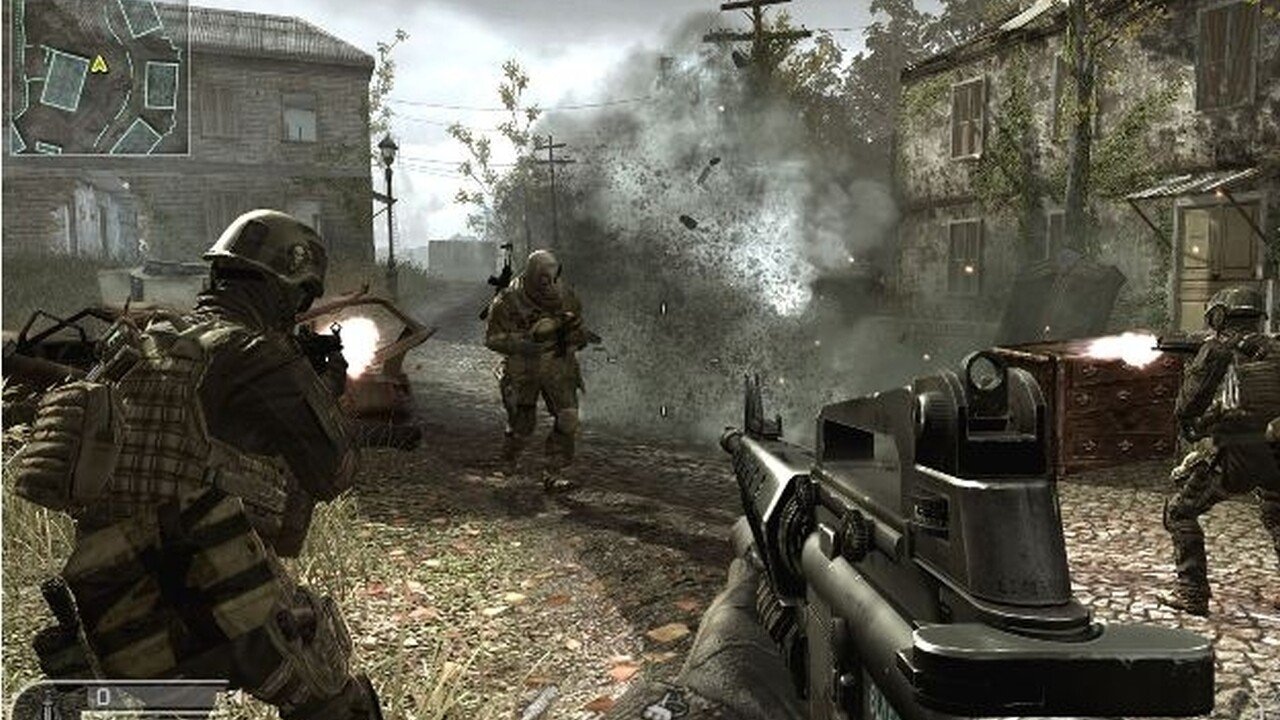The last time I got into a fist fight was in junior high and I didn’t like it at all. As I grew up I tried to avoid violence as much as possible, and it worked. I went to a small high school where fights were uncommon and attended a university where serious, physical altercations were also pretty rare. I never had to hit anyone and I never had to get hit. Just the same, the fortune of being able to live a peaceful kind of life — the sort of life that isn’t uncommon to many North Americans — wasn’t echoed in a lot of the videogames my friends and I played.
Our Friday and Saturday nights were typically spent walking around the cities we lived in, visiting other friends, going to parties and playing or listening to music. All of this was peaceful and good, but when we played games we assumed the roles of virtual warriors. In high school we rampaged through the streets of Liberty City in Grand Theft Auto III, acted out some of the 20
century’s bloodiest battles in Call of Duty or razed fantastical armies and towns in Warcraft III. In university we murdered each other in Halo 2 death matches or wreaked brutal havoc in the mythological ancient Greece of God of War. All of this in stark contrast to the pacifism of growing up in a peaceful Canada.
At this point in time I liked videogames a whole lot, but hadn’t really delved into the many different genres on offer through the medium. What I played pretty much consisted of those titles that both floated up to the mainstream and looked interesting to me. Because of this, the bulk of the games I was exposed to were ones where the main objectives revolve around carrying out violent acts. The fact that sort of thing is contrary to the way I and many others experienced life didn’t seem to matter — games just seemed like entertainment that would scratch the same itch as action or thriller films and nothing more. Their violence was a type of popular escapism.
That hasn’t changed a great deal, but it very well could. Despite the continued success of blockbusters like the Call of Duty: Modern Warfare or Gears of War franchises, a level of willingness to experiment with the ramifications of violence (look at Grand Theft Auto IV’s treatment of story-sanctioned murder in comparison to earlier entries to the series) and the greater penetration of less conventional indie games through PSN, XBLA and Steam means that the mainstream videogame could become a less combat-centric space in the coming years. This kind of diversity would provide a richer landscape for players of all stripes and probably do a lot to shift the popular perception of the games industry away from the lingering (and misguided) demonization it’s still marked by.
A while ago I was talking to my oldest brother and he was complaining that he couldn’t play any videogame other than Tiger Woods PGA Tour while his two year old son was around. He’s open to a wide variety of games, but doesn’t actively research and seek out titles. Like many players, my brother’s buying choices are made up of the biggest budgeted and best marketed titles. The problem was that he didn’t want to expose his child to some of his favourite of these kind of games. Uncharted’s gun battles, Modern Warfare’s calamitous battlefields and Left 4 Dead’s blood-drenched zombies all go out the window when an impressionable infant is around to watch.
I suggested that he pick up a copy of either the first or second LittleBigPlanet, but after tinkering around with it for awhile he wanted something else. The problem was that for him — and for much of the mainstream game players — finding that something else can be extremely difficult. Non-violent games still exist on a fringe, struggling to gain the same cultural cachet as their bloodier counterparts.
A future videogame industry where a Portal or Journey can have the same type of impact as a Call of Duty or Battlefield game would solve this presumably common type of problem and help make our medium a better rounded one where every kind of player can easily find the kind of experience s/he wants.
***
Reid McCarter is a writer, editor and musician living and working in Toronto. He has written for sites and magazines including Kill Screen, The Escapist and C&G Magazine. He founded, writes and edits the videogame blog digitallovechild.com and is Twitter-ready @reidmccarter.




